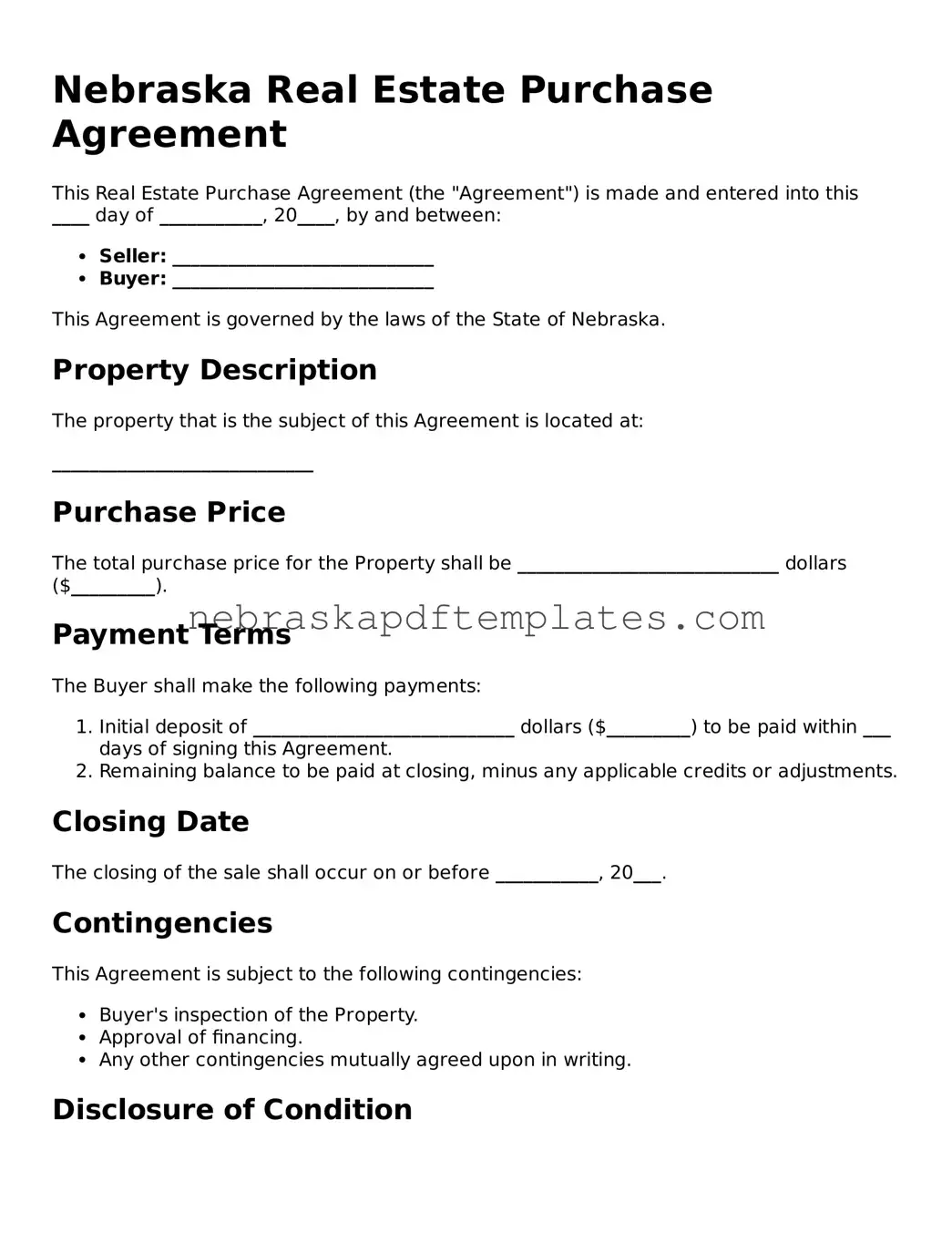What is a Nebraska Real Estate Purchase Agreement?
The Nebraska Real Estate Purchase Agreement is a legally binding document that outlines the terms and conditions for the sale of real estate in Nebraska. This agreement serves to protect both the buyer and the seller by clearly detailing the responsibilities and expectations of each party involved in the transaction.
What key elements are included in the agreement?
A typical Nebraska Real Estate Purchase Agreement includes several important components:
-
Property Description:
A detailed description of the property being sold, including its address and legal description.
-
Purchase Price:
The agreed-upon price for the property, along with information on any deposits or earnest money.
-
Contingencies:
Conditions that must be met for the sale to proceed, such as financing or inspections.
-
Closing Date:
The date when the sale will be finalized and ownership transferred.
-
Signatures:
Signatures of both the buyer and the seller, indicating their agreement to the terms.
Are there any contingencies that can be included?
Yes, contingencies are common in real estate agreements. They allow the buyer to back out of the deal without penalty if certain conditions are not met. Common contingencies may include:
-
Financing contingency: This ensures that the buyer can secure a mortgage.
-
Inspection contingency: This allows the buyer to have the property inspected and request repairs or negotiate price adjustments based on findings.
-
Appraisal contingency: This protects the buyer if the property does not appraise for the agreed purchase price.
How is the purchase price determined?
The purchase price is typically determined through negotiations between the buyer and seller. Factors influencing this price may include the current market conditions, comparable property sales in the area, and the overall condition of the property. An appraisal may also be requested to provide an objective valuation.
What happens if one party wants to back out of the agreement?
If either party wishes to back out of the agreement, the consequences depend on the terms outlined in the contract. If a buyer withdraws without a valid contingency, they may forfeit their earnest money deposit. Conversely, if the seller backs out without justification, the buyer may have legal grounds to pursue damages or enforce the agreement.
Is it necessary to have a real estate attorney review the agreement?
While it is not legally required to have an attorney review the Nebraska Real Estate Purchase Agreement, it is often advisable. An attorney can help ensure that the terms are fair, that all legal requirements are met, and that the rights of both parties are protected throughout the transaction process.
How can I obtain a Nebraska Real Estate Purchase Agreement?
A Nebraska Real Estate Purchase Agreement can be obtained through various sources, including:
-
Real estate agents or brokers, who often provide standardized forms.
-
Online legal document services that offer customizable templates.
-
Local real estate offices or associations that may provide forms to their members.

